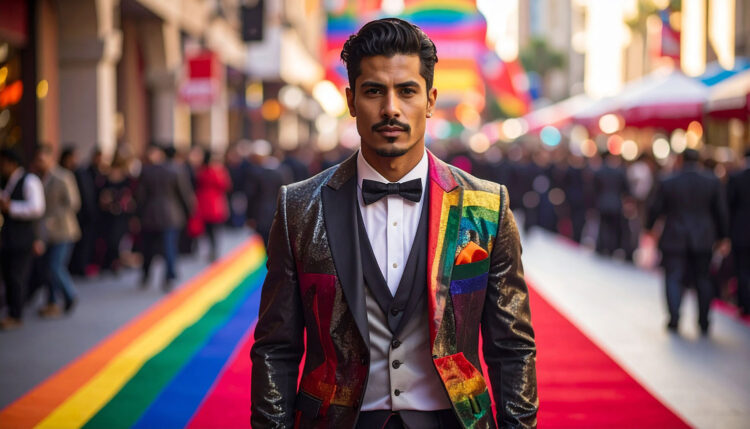
But, Are You Gay?
October 11, 2025 • Editorial • David
In the ongoing evolution of queer representation in film and television, one paradox continues to undermine genuine progress. Whenever a heterosexual actor takes on an LGBTQ+ role, the conversation too often shifts away from the craft and toward speculation about the actor’s own sexuality. Even when an actor has publicly identified as straight, the assumption lingers that portraying queerness on screen must mean that the actor themselves must be hiding their queerness in their real life.
Few examples capture this better than Brokeback Mountain, Ang Lee’s 2005 masterpiece that forever altered how mainstream cinema depicted queer love. Heath Ledger and Jake Gyllenhaal, both heterosexual men, delivered performances of remarkable tenderness and restraint. The film broke barriers, introducing millions to a portrayal of same-sex love that was tragic, human, and deeply moving. Yet the aftermath for both actors was telling.
Instead of universal praise for their bravery and emotional range, they faced years of questions about their own sexuality — as if inhabiting the experience of two gay men made their heterosexuality suspect. Ledger, in particular, bristled at the insinuations, not because he feared being mistaken for gay, but because the very question cheapened what acting is meant to be.
Nearly two decades later, the conversation has evolved, but not enough. We say we want straight actors (especially men) to be confident enough in their identities to play queer characters without fear or defensiveness. But when they do, we often turn around and question those identities anyway.
The message becomes self-defeating: “Be comfortable enough to play gay, but expect your sexuality to be questioned if you do.”
It’s understandable where the scrutiny comes from. For too long, queer characters were filtered through heterosexual performance and perspective. Representation meant approximation. The push to have LGBTQ+ roles portrayed by LGBTQ+ actors was and remains vital as it creates opportunities for those historically excluded and ensures their stories are told with nuance. But inclusion should never curdle into suspicion. The goal was to expand empathy, not to police who is allowed to express it.
Speculating about an actor’s sexuality because of the role they play ultimately keeps us tethered to old stigmas. It implies that queerness remains something unusual, something to be explained, something that marks the performer rather than the performance. That kind of thinking doesn’t liberate anyone; it just replaces one form of judgment with another.
When Ledger and Gyllenhaal made Brokeback Mountain, they helped open doors for more honest depictions of queer love on screen. But the discomfort that surrounded their portrayals also revealed how far we still had to go in accepting that empathy, imagination, and artistry don’t threaten identity. If we truly want actors — of any sexuality — to tell human stories in their full complexity, we have to let go of the impulse to translate every artistic choice into autobiography.
Progress means giving both queer and straight actors space to tell queer stories without fear of judgment. The measure of acceptance isn’t just who plays whom on screen, but whether we can finally stop mistaking performance for confession. Because the moment we start doing that, we haven’t moved forward at all. We’ve just found a more socially acceptable way to stay stuck.
